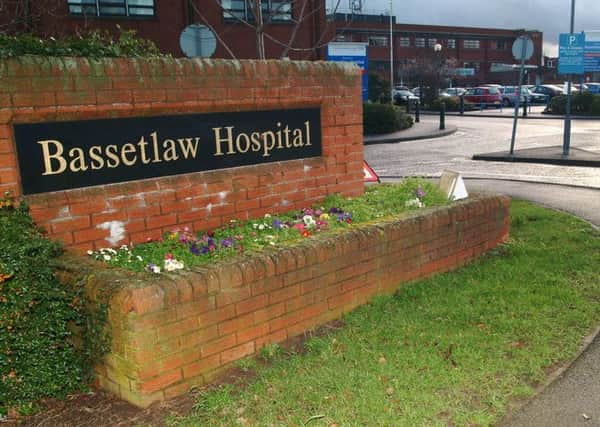Bassetlaw: Patients are now taking control of their own health with new telehealth service


The CCG has funded the new care navigation and telehealth service to help patients take control of their long-term condition.
Long-term conditions are illnesses that cannot be cured but can be managed through medication and therapy, such as heart disease, diabetes, stroke and high blood pressure.
Advertisement
Advertisement
The service, which started as a pilot programme in a number of GP practices last year is now being made available to all Bassetlaw GP practices from April.
Led by a dedicated team of nurses, the new service can help people take control of their long-term condition through self-awareness and self-management and care is tailored to suit an individual’s needs.
Mick Ebbs from Worksop, who had a heart attack last year, has one of the telehealth monitoring devices in his home.
The device allows Mr Ebbs to control his illness by having a community nurse monitor his condition remotely by sending health information from the device back to the nurse, allowing the health team to observe Mr Ebbs’ condition, pro-actively managing his symptoms preventing his condition from becoming worse.
Advertisement
Advertisement
Mr Ebbs said: “Having the device at home has increased my confidence as it took a big knock after the heart attack.”
“It asks me questions about my health and wellbeing and takes my blood pressure and weight so it is just like going to the doctors, only it’s a lot easier and I can do it at my own pace.”
“I can understand and manage my condition, it’s great, I wouldn’t like to be without it now.”
Dr Steve Kell, chairman of Bassetlaw CCG and GP at Larwood and Village Surgeries added: “If you have an ongoing illness or condition this new service can help.”
Advertisement
Advertisement
“Provided over the phone or internet it is free, quick, easy and convenient to use and helps people with these conditions to understand and control their illnesses better.”
“The pilot has been extremely successful and has already shown positive improvements, reducing unnecessary GP visits, attendances to A&E and admissions to hospital.”
“This means that local NHS services are used more appropriately, as by reducing unnecessary admissions hospital allows clinicians to spend more time helping people with life-threatening and emergency conditions, such as heart attacks, strokes and serious injuries.”
“By reducing unnecessary admissions to GP practices it allows GPs to see other patients who may be more in need of seeing a GP quickly.”